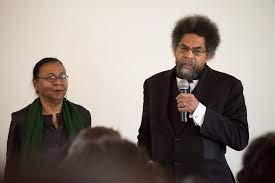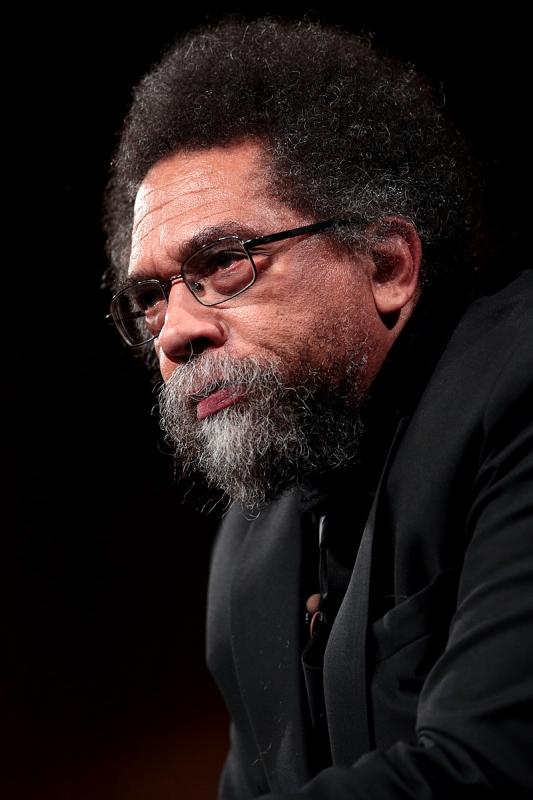Syllabus for Virtual Critical Thinking at Leadership Institute
@Allen Temple Spring 2022
Dates: Thursday, Feb. 10-May 5, 2022,
8:15-9:45 p.m.
Location: Online in Zoom
Teacher: Professor Wanda Sabir
Contact: professorwandasposse@gmail.com
Student hours: By appointment Monday
after class (send an email request)
Important Dates:
Late Registration February 14‐22, 2022
Presidents
Day (No Classes) February 21, 2022
Last Day to
Drop Classes February 22, 2022
Spring Break
(Holy Week) April 11 – April 16, 2022
Last Day of
Classes May 5, 2022 (Final)
LIAT
Zoom Meeting ID and Password:
Meeting ID: 831 2404
4904
Passcode: 247020
Course
Description:
Critical thinking looks at the relationship between language and logic, introduces
rhetoric or persuasive writing and tools students can use to evaluate
information based on facts, perceptions, assumptions, evidence, reasons,
inferences, judgments, induction, deduction and conclusions. Vocabulary is
introduced so that students have the proper tools to discuss faulty thinking or
flaws in the reasoning process and name the more common fallacies.
This level composition assumes competency in prose writing and
reading ability so that more attention can be devoted to ideas rather than to
grammar and mechanics. Students who will most likely succeed in this course if
said student is familiar with essay writing and academic research. These topics
covered in first year college level English often referred to as Freshman Comp.
We will look at the role of language and semantics in critical
thinking, social communications and propaganda. Students will also look at the
fundamentals of problem solving, including considering and evaluating
alternative solutions and perspectives. We will write a series of four (4)
arguments – 2-4 page essays which are on one topic or theme, yet utilizes a
variety of argumentative styles. The final essay will on a current issue of the
student’s choice in an argumentative form of the student’s choosing.
Each of the core
assignments will use one argument style: Rogerian, Definition, Aristotelian and
Toulmin. For the fifth essay, students have
an opportunity to write about a topic that interests them in whatever argument
style they chose. Students will also complete a number of exercises from our
text: Writing Logically, Thinking
Critically (Eighth Edition) by Sheila Cooper and Rosemary Patton. We will also
use The Miniature
Guide to Critical Thinking: Concepts and Tools (Eighth Edition) by Rowman & Littlefield (links to an external
site) which looks at the
genre philosophically as a practice, for class warm-ups, discussion and some
homework.
Course Rationale:
Everyone thinks, yet how many of us takes the time to access why she or he hold
such information as true? What does it mean to withhold judgement? Can a person
hold multiple truths at the same time? How can a person love her or his enemy?
When we think about ideas and how our world view affects our thinking we can
then act with moral deliberation. I do not think any of us is unbiased. It is
hard to take oneself out of any discourse; however, we can cultivate empathy.
Thinking can determine our actions. If we act without thinking, harm is
possible. Some harm is irreversible. Critical thinking gives persons a set of
tools applicable to all circumstances and with these tools we can be better
human beings and better citizens and better neighbors.
Prerequisites:
English 1A or Freshman Composition from an accredited institution. High School
Honors English can also suffice. An Entry Essay Exam can suffice as well.
Student Learning Outcomes (SLOs)
Apply tools of understand inferences to community, workplace and
family situations.
Evaluate materials/data in terms of accuracy as well as
relevance to home and workplace situations.
Identify logical fallacies in communication.
Conduct research identifying relevant and accurate materials
from a variety of sources, including databases, professional publications, and
other applicable materials.
Identify personal bias and other filters in order to evaluate
community, family and professional materials objectively.
Required Texts and materials:
Cooper, Sheila and Rosemary Patton. Writing
Logically, Thinking Critically. Eighth Edition. New York: Longman,
2015.
Elder, Linda and Richard Paul. The Miniature Guide to Critical Thinking: Concepts and
Tools. Eighth Edition. Maryland: Rowman & Littlefield,
2020.
Digital Books by Black Women Spiritualists Mrs. Jarena
Lee;
Harriet Wilson; Sojourner
Truth
or another 19th Century Black Woman preacher.
Grading Policy and evaluation procedures:
Credit hours: 3 units
Grading scale: Standard Letter Grades (A, B, C, D, F). Pass/Fail (Speak to
Dean). Incomplete (this teacher does not generally give Incomplete grade, so
plan to attend and do the work.
Requirements and Assignment
Written Arguments (30%), textbook assignments and
other readings, etc. (25%); the research process: reflections, participation
with peers, preparation, presentations, thoughtful reflection – (25%), the
course portfolio (15%); final exam (15%).
Classroom policies
Attendance policy
Attend all the Zoom sessions. There are no make-up assignments for missed
in-class assignments.
Absences
Plan to attend all the class sessions, if an unavoidable class is to be missed,
let the teacher know in advance and we might be able to record the class to
watch before the next meeting. We could also ask one of your classmates to take
notes and share with you outside of class before the next meeting.
Any work completed in class, cannot be made up.
Tardiness
Be on time. The class will be open about 15 minutes before starting just in
case a student wants to pop in early with a question.
Late Work and make up assignments
You have about a week to get all assignments in, this includes peer responses.
Everyone will have to respond to 2-3 classmates on all assignments. We will use
an unpublished blog to post assignments.
If a student needs more time on an assignment, do not wait until it is due.
Each assignment builds on previous work. The brick you skip is the one keeping the
structure from falling. All assignments are to be typed, 12-pt. font,
double-spaced lines, indentations on paragraphs, 1-inch margins around the
written work typical MLA format for an academic essay. Perfect MLA.
MLA Sample Paper (Links to an external site). Again
look at the headings in the margin and bookmark those you might need often such
as Cite your source automatically in MLA., For a refresher, see MLA Overview and Workshop (Links to an
external site.)
Late assignments (1-2) are accepted if notified in
advance; however, with penalty. Late assignments are not allowed revision
unless (to pass the assignment or exercise). The grade is a C. If this is habitual, that is, more than twice
or consecutively, we will have to talk. If you’d like an A in the course, turn
your assignments in on time.
Academic Honesty
The goal of this syllabus is to be student
centered; however, the institution requires that I give a statement regarding
academic honesty, which means that students submit original work and do not
borrow or take another person's intellectual property without giving
attribution or credit.
Why not? Your work is your intellectual
property whether or not it is copyrighted is beside the point. Sometimes researchers,
especially novices, forget where their information was found. You get 1 pass on
this; however, if you intentionally take authorship of another thinker’s work,
this is unacceptable (you will earn a failing grade) and such behavior can ruin
your reputation perhaps forever. Remember
“The Boy Who Cried Wolf”? See CoolSchools (links to an external site) version
of this classic.
Be careful in the research process; make sure you know where the information is
obtained. A name for such intentional dishonesty is plagiarism.
See Purdue OWL for a discussion on plagiarism
(links to an external site) and how to avoid it.
Technology Policy
Cell phones as phones: All cell phones are expected to be silenced or on
vibrate in class. Any use of cell phone
for texting should be discrete and unobtrusive to the learning experience of
other classmates. If a student needs to excuse herself or himself from class,
you can drop a private message in the chat to the teacher. However, if a
student is noticed inattentive, the student will be marked absent, so when you
are in class this means both mind and body, not just body.
Cell phones as recording devices: At
no point should a phone be used to capture the class via audio or video without
prior consent of students and teacher. The sensitive nature of class
discussions requires trust, sensitivity and freedom of expression which can be
compromised when a recording device is used. If a student wants to record a
class, prior conversation with the professor is necessary.
Zoom Class Policy
Students taking this class for credit are required to use a computer camera revealing
your face during class sessions. The use of virtual backgrounds are acceptable.
To be excused from this requirement, you must get clearance from the teacher.
It is important to be respectful of all students and their viewpoints,
especially when the opinions expressed are at variance with your own, that is,
you disagree. We are not monolithic and differing opinions and views are
encouraged.
Course Calendar (subject to change or adjustment)
Week 1 Thinking and Writing—A Critical Connection. What is a Critical Thinker?
(WLTC pp. 1-22)
Review essay writing, MLA, Academic Writing Style and Formatting (WLTC p. 191)
Week 2 – Critical Societies (The Miniature Guide to Critical Thinking:
Chapter 7-8)
Week 3 Critical Thought (WLTC) Chapter 2 pp. 22-49
Week 4 The Structure of Argument (WLTC) p. 50
Week 5 Written Argument (WLTC) p. 70
Week 6 The Language of Argument – Definition (WLTC) p. 94; MGCT Chapter 10
& 11
Week 7 Midterm essay. Aristotelian Argumentation; Fallacious Arguments (WLTC)
p. 122
Week 8 Deductive and Inductive Reasoning
(WLTC) p. 148
Week 9 Toulmin Argument
Week 10 Wrapping Up- Questions. MGCT Chapter 12 & 13
Week 11 Final Argument poster presentation
Week 12 Final Exam essay due in class for discussion; plus teaching
demonstration.
How to study for this course
Do not skip the readings in either textbook. Read with a pencil in your hand.
Writing Logically, Thinking Critically (WLTC) has a summary at the end of each
chapter and a glossary of key terms. Read this first. As you then read the
chapter from the beginning to the end, note concepts you are not aware of.
There are exercises throughout each chapter, complete the Writing Assignments
(WA); on the exercises, complete at least half if you understand the concept.
How to be successful in this
course
Ask
questions in class if you do not understand the readings or lecture. You can
use the icons and raise your hand and drop questions into the chat.
All essays will be due in class. We will also do as much planning for these
essays in class as we can. Students will be assigned to groups beginning Week
1-2. Students will be asked to form a discussion group in an online discussion
platform or list-serve to stay in touch.
Computer literacy
If there are technology challenges, plan to meet with me outside class to
work through problems. All work is to be typed and submitted electronically.
Video and photos of assignments are also acceptable when access is a
challenge. You can write in the textbook
where possible. Let me know early in the class so that we can locate resources
and or peer support.
More on Goals and Objectives
This intention of this course is to offer an invigorating discourse or dialogue
for those students who love a challenge and approach the writing task eager,
prepared and ready for what the course requires: English language fluency in
writing and reading; a certain comfort and ease with the language; confidence
and skillful application of literary skills associated with academic writing,
plus familiarity, if not mastery, of the rhetorical styles used in
argumentation, exposition and narration.
We will be evaluating what we know and how we came to know what
we know, a field called epistemology or the study of knowledge. Granted, the
perspective is western culture which eliminates the values of the majority
populations, so-called underdeveloped or undeveloped countries or cultures. Let
us not fall into typical superiority traps. Try to maintain a mental elasticity
and a willingness to let go of concepts which not only limit your growth as an
intelligent being, but put you at a distinct disadvantage as a species.
This is a highly charged and potentially revolutionary process -
critical thinking. The process of evaluating all that you swallowed without
chewing up to now is possibly even dangerous. This is one of the problems with
bigotry; it is easier to go with tradition than toss it, and create a new, more
just, alternative protocol.
Disclaimer: I noticed in rereading the text the language in
certain examples is not always socially relevant or politically conscious (WLTC
p. 6) considering the authors are at San Francisco State University; however,
that’s my assumption. Overall, the authors do a pretty good job in presenting
the topic concisely and with humor.
Audience
The hope is that when you leave the course, you will be a
stronger writer than when you arrived, have a better grasp of what is meant by
rhetoric or the art of persuasion. We will be honest with one another.
Grades are not necessarily a complete assessment of one’s work; grades do not
take into consideration the effort or time spent, only whether or not students
can demonstrate mastery of a skill – in this case: essay writing. Grades are an
approximation, arbitrary at best, no matter how many safeguards one tries to
put in place to avoid such ambiguity. Suffice it to say, your portfolio will
illustrate your competence. It will represent your progress, your success or
failure this semester in meeting your goal.
Jot down briefly what your goals are this semester. List them in
order of importance.
1.
2.
3.
4.
5.
First Assignment due Wed., Feb. 9-Sunday, Feb. 13 (12 noon)
Email a note to me about yourself via professorwandasposse@gmail.com:
Share: where you were born, who you are responsible for, what languages you
speak/write, your strengths, what you bring to the class, what you'd like to
leave with and what if anything I need to know to facilitate your success. Use
as many words as you need (smile). Don’t submit a book please: 100-250 words
should suffice.
Before completing the assignment read one of these two articles
on the topic: https://academicpositions.com/career-advice/how-to-email-a-professor
or https://owl.purdue.edu/owl/general_writing/academic_writing/email_etiquette.html
What is the poem’s argument? Be prepared
to talk about it in class. Keep a notebook. It can be electronic.
There But for the
Grace
It could have
happened.
It had to happen.
It happened sooner.
Later.
Nearer. Farther.
It happened not to
you.
You survived because
you were the first.
You survived because
you were the last.
Because you were
alone. Because of people.
Because you turned
left. Because you turned right.
Because rain fell.
Because a shadow fell.
Because sunny
weather prevailed.
Luckily, there was a
wood.
Luckily there were
no trees.
Luckily there was a
rail, a hook, a beam, a brake,
a frame, a bend, a
millimeter, a second.
Luckily a straw was
floating on the surface.
Thanks to, because,
and yet, in spite of.
What would have
happened had not a hand, a foot,
by a step, a
hairsbreadth
by sheer
coincidence.
So you’re here?
Straight from a moment still ajar?
The net had one
eyehole, and you got through it?
There’s no end to my
wonder, my silence.
Listen
how fast your heart
beats in me.


